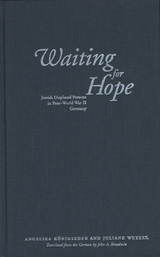Sweatshop Capital: Profit, Violence, and Solidarity Movements in the Long Twentieth Century
Duke University Press, 2025
Cloth: 978-1-4780-2933-5 | Paper: 978-1-4780-3279-3 | eISBN: 978-1-4780-6152-6 (standard)
See other books on: Activism & Social Justice | Long Twentieth Century | Profit | Violence | Women's Studies
See other titles from Duke University Press
Cloth: 978-1-4780-2933-5 | Paper: 978-1-4780-3279-3 | eISBN: 978-1-4780-6152-6 (standard)
ABOUT THIS BOOK | AUTHOR BIOGRAPHY | REVIEWS | TOC
ABOUT THIS BOOK
In Sweatshop Capital, Beth Robinson examines the brutal sweatshop labor conditions that produced American consumer goods from the late nineteenth through the early twenty-first centuries, as well the labor and social movements that contested them. Arguing that sweatshop labor is a persistent feature of capitalism, she shows how manufacturers used both their influence in government and their mobility to side-step US labor laws, maximize profits, and perpetuate abuses. She outlines how workers and their allies routinely confronted manufacturers by building solidarity networks across race, class, and national lines. Drawing on activists’ literature, news accounts, archival sources, and oral histories, Robinson presents the long history of the antisweatshop movements that responded to American capital’s pursuit of profit through hyperexploitation with a wide range of protest, legal action, and creativity. Beginning with the sweatshops and reformers of the Progressive Era, Robinson moves through the Great Depression and the activism of the Popular Front, the “free trade” globalization of the 1990s and its discontents, and, finally, the global cyber and gig economies of the twenty-first century and the growing movements to reel them in.
See other books on: Activism & Social Justice | Long Twentieth Century | Profit | Violence | Women's Studies
See other titles from Duke University Press












